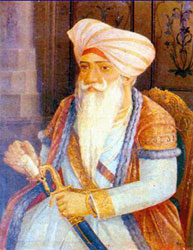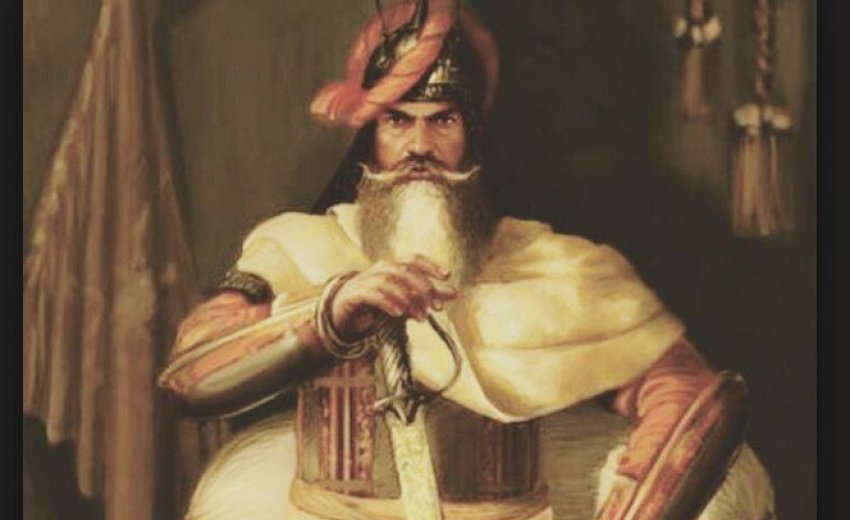 THE MEMOIRS OF my school days are still fresh and one incident particularly strikes me more than often. I was in class 8th and had memorized by heart all the stories and adventures of great Indian leaders. These snippets from history that floated in my mind included that of the Maratha King Shivaji; Rana Pratap, the great Rajput warrior; Guru Gobind Singh, the last Sikh Guru and the whole Mughal dynasty. From Babur to Indira Gandhi, there was everyone down there in my history book. It is now that I realize how writers treated their subjects and how accounts had been written or produced. They were written in a plain language, as if the authors had a hard time giving credits to their many acts of heroism and courage.
THE MEMOIRS OF my school days are still fresh and one incident particularly strikes me more than often. I was in class 8th and had memorized by heart all the stories and adventures of great Indian leaders. These snippets from history that floated in my mind included that of the Maratha King Shivaji; Rana Pratap, the great Rajput warrior; Guru Gobind Singh, the last Sikh Guru and the whole Mughal dynasty. From Babur to Indira Gandhi, there was everyone down there in my history book. It is now that I realize how writers treated their subjects and how accounts had been written or produced. They were written in a plain language, as if the authors had a hard time giving credits to their many acts of heroism and courage.
On that particular day, I was sitting in the back row and chupke chupke (without making a fuss) opened my comic book and start reading it for the third time. Suddenly someone shout: "What are you reading? Come here, bring it with you.” It was my teacher, Mrs. Saxena, and she snatched it from my hands and began reading the title: " Hari Singh Nalwa. Who is he and when I am teaching you about the rise of Brahmo-Samaj, how dare you read a comic book. Keep your hands above your head and stand there in the corner,” she demanded. I felt insulted not for myself but for Hari Singh Nalwa. He was now at the top in my list of Heroes. With tears rolling down I started to visualise the scene where in Afghani mothers from Kabul to Peshawar pacified their naughty children. The words "Chup kero, Haria Ai! (Keep quite otherwise Hari Singh Nalwa will come) were echoed in my ears. In no time the bell rang and the class was over. Mrs. Saxena came to me and gave my comic book back. She said: "This is ‘Amar Chitra Katha’, cover it in plastic and never read these stories in your history class. OK". I promised that I will never read the stories but couldn’t keep it for long.
As for Hari Singh Nalwa (A.D.1791-1837), he was the Commander in Chief of Maharaja Ranjit Singh. Famous as Nalua Sardar, Hari Singh Nalwa never lost a battle and won Kasur, Sialkot, Kashmir, Multan and Peshawar from Afghans (A.D.1837). He was the first General to march ahead of an army from India up to the Khyber pass, since the time of Aurangzeb. He blocked the same (Khyber Pass), as conquerors used to invade India via this route only. He put an end to the invasions of India and is still remembered by story-tellers in Peshawar.
The samadhi (place of cremation) of this Great Sardar lies inside Jamrud Fort, which he built and there used to be a memorial, built in his honour, in Peshawar town. However no one knows about its existence. British historians of 19th century compared Nalua Sardar’s exploits with Napoleon Bonaparte. The story of "The Murat of Khalsa" should be told of and we already have too many Sikhs in our history textbooks.
What we inherit, what is our legacy, our culture and cultural icons, should be preserved and there is a need to improvise our primary institutions so that people can better understand and assimilate the traits of cultural past. Indian education system, particularly, faces a number of challenges as many historical accounts and stories get buried due to institutional lapses. Researches and documentation can further be taken into cognizance to save our cultural heritage. The gems of the golden history book lie scattered everywhere. It is time to search and cherish these precious gifts, lest they will get lost with the heaping earth.

